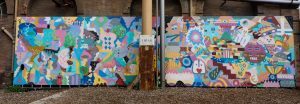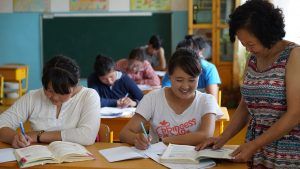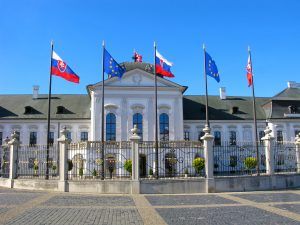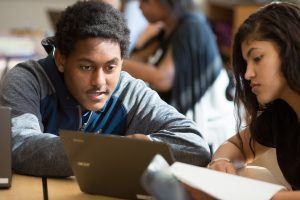How Open Educational Resources can Help OGP Initiatives
Los recursos educativos abiertos en apoyo a las iniciativas de OGP
This post is a portion of the original Creative Commons blog post. Read it here.
| Open educational resources (OER) are teaching, learning, and research materials that are either (a) in the public domain or (b) licensed in a manner that provides everyone with free and perpetual permission to retain, use, change and share the works with others. OER are one facet of open educationAccountability within the public education system is key to improving outcomes and attainment, and accountability is nearly impossible without transparent policies and opportunities for participation ..., or efforts to make education more affordable, accessible and effective–providing unfettered access to learning to as many people as possible. Open education involves open practices, open policies and open educational resources. |
Currently we face both a swell of support for open educational resources (OER) and devastating upheaval of our traditional education systems. Resulting from the COVID-19 pandemic, over 1.5 billion youthRecognizing that investing in youth means investing in a better future, OGP participating governments are creating meaningful opportunities for youth to participate in government processes. Technical ... More are out of school, countless teachers and parents are pivoting to online teaching and education systems face immense financial strain. While OER are not a magic cure for the current education crisis, there are opportunities to work with open education efforts to build greater resiliency within our learning ecosystems and also support open government efforts.
Today, we have a stronger need and the established international frameworks to use OER to fuel our education efforts and collective commitments. This pandemic highlights the effects closing access to information and communication has on communities; conversely it demonstrates how essential open practices (free sharing of information, unfettered access to education materials) are to our collective human security.
Exemplifying the benefit of open educational practices, Slovakia’s most recent OGP commitments include mapping the available open educational resources in the Slovak language. When schools closed with the COVID-19 quarantine, the OGP Slovakia team promptly released a work-in-progress version of the resources overview through social media, which became the most popular of its Facebook posts, ever. Teachers and parents found it very helpful to immediately access, adopt and reuse the resources freely, and the impact may last well beyond the current crisis. Read more country examples leveraging OER in COVID-19 response efforts, in the Creative Commons blogpost here.
Even before the pandemic, numerous OGP countries recognized the powerful intersection between OER and open government. In the last 10 years, many countries such as Chile, Greece, and Romania have leveraged OER efforts to address OGP goals of transparency, accountability, public participation and inclusion in their education systems, fiscal accountability, and improvement of public services. Read how nine OGP commitments are supporting OGP’s goals through open educational resources here.
The 2019 OGP Global Report states that at the end of 2018, there have been at least 160 education commitments (pg 6 of the Education section). The Education section also highlights cases made for OER (page 23): potential prohibitive costs of traditional materials, the ability to keep open source materials updated, and higher student performance.
Now more than ever, governments recognize the potential of OER–and the opportunity to partner under international frameworks that support open education goals. In November 2019, UNESCO unanimously passed the UNESCO Open Educational Resources (OER) Recommendation to advance the construction of open, inclusive and participatory knowledge societies and established a Dynamic Coalition of government, civil society and private sector experts connected to support the recommendations. The OER Recommendation dovetails with SDG4 efforts, emphasizing that open education can support “inclusive and equitable quality education” and “lifelong learning opportunities for all.”
National government counterparts currently seek the partnerships and open projects to help them actualize SDG4 and OER Recommendation aims –something the OGP community has mastered. OGP represents an ideal vehicle for UNESCO member governments to push that work forward. The OGP community has a unique opportunity to help UNESCO government counterparts fulfill OER commitments, while we continue to leverage OER efforts to meet OGP goals at the same time.
How can you get involved?
- Open education networks have provided outreach–offering “how to” webinars, support for emotional wellbeing, and lists of open resources for use. View this wikipedia article section collecting just a few of the resources and responses.
- Join the Creative Commons open education listserv or Slack community or discuss opportunities for engagement in open education efforts with [email protected]; or open data and open source efforts with [email protected].
This post was written in collaboration with Jan Gondol, Ebba Ossiannilsson, Karolina Szczepaniak and Spencer Ellis.
Featured Photo by Allison Shelly/The Verbatium Agency for American Education: Images of Teachers and Students in Action, licensed CC BY-NC 4.0
Este artículo es un extracto de un blog publicado originalmente por Creative Commons. Para leerlo, haz clic aquí.
| Los recursos educativos abiertos (REA) son materiales de enseñanza, aprendizaje e investigación que (a) son de dominio público o (b) que cuentan con una) licencia que le permite al público tener permiso libre y continuo de retener, modificar y compartir el trabajo de colegas. Los REA son un elemento de la educación abierta que permite que la educación sea más efectiva y accesible – ofreciendo acceso ilimitado a la educación a tanta gente como sea posible. La educación abierta implica prácticas abiertas, políticas abiertas y recursos educativos abiertos. |
Actualmente estamos observando un gran apoyo a los recursos educativos abiertos (REA) y al mismo tiempo un trastorno devastador de nuestros sistemas educativos tradicionales. Como consecuencia de la pandemia el COVID-19, más de mil quinientos millones de niños y jóvenes no están asistiendo a la escuela e incontables maestros y padres de familia están utilizando sistemas virtuales para apoyar la educación de los estudiantes. Los sistemas educativos están enfrentando presiones financieras significativas. Aunque los REA no son una cura mágica a la crisis educativa que estamos viviendo, queremos aprovechar la oportunidad de trabajar con esfuerzos de educación abierta para fortalecer la resiliencia de los ecosistemas educativos y apoyar los esfuerzos de gobierno abierto.
Hoy, tenemos una mayor necesidad y contamos con los esquemas internacionales establecidos para el uso de los REA para alimentar nuestros esfuerzos educativos y compromisos colectivos. La pandemia ha demostrado los efectos que el cerrar el acceso a la información y comunicación puede tener en las sociedades. Asimismo, demuestra que las prácticas abiertas son esenciales (libre intercambio de información y acceso ilimitado a materiales educativos) para la seguridad humana colectiva.
Demostrando los beneficios que implican las prácticas educativas abiertas, los compromisos más recientes de OGP de Eslovaquia incluyen un mapeo de los recursos abiertos educativos disponibles en eslovaco. Cuando las escuelas se cerraron por la cuarentena por COVID-19, el equipo de OGP de Eslovaquia de inmediato publicó una versión preliminar de los recursos a través de las redes sociales, la cual fue una de sus publicaciones más populares de Facebook. Para los maestros y padres de familia fue muy útil tener acceso inmediato, adoptar y reutilizar los recursos son costo y su impacto podría ir mucho más allá de la crisis actual. Para leer sobre más ejemplos de países que están aprovechando los REA entre sus esfuerzos de respuesta al COVID-19, consulta el blog de Creative Commons aquí.
Incluso antes de la pandemia, muchos países ya habían reconocido las sinergias que pueden existir entre los REA y el gobierno abierto. En los últimos 10 años, muchos países como Chile, Grecia y Rumanía han aprovechado sus esfuerzos de REA para impulsar los objetivos de OGP de transparencia, rendición de cuentas, participación pública e inclusión en sus sistemas educativos, rendición de cuentas fiscal y mejoramiento de los servicios públicos. Aquí puedes saber más sobre nueve compromisos de OGP que están apoyando los objetivos de OGP a través de recursos educativos abiertos.
El Informe global de OGP publicado en 2019 indica que a finales de 2018 había al menos 160 compromisos sobre educación (página 6 de la sección sobre educación). Además, esta sección presenta algunos argumentos a favor de los REA (página 23): costos prohibitivos de los materiales tradicionales, la posibilidad de mantener los recursos actualizados y un mejor desempeño de los estudiantes.
Hoy más que nunca los gobiernos están reconociendo el potencial de los REA y la oportunidad de formar alianzas dentro de marcos internacionales que apoyan los objetivos de educación abierta. En noviembre de 2019, la UNESCO, de forma unánime, aprobó la Recomendación sobre Recursos Educativos Abiertos para impulsar la construcción de sociedades del conocimiento abiertas, incluyentes y participativas y establecer una coalición dinámica entre expertos de gobierno, la sociedad civil y el sector privado para apoyar las recomendaciones. La recomendación se alinea con los esfuerzos asociados al ODS4, enfatizando que la educación abierta puede apoyar una “educación incluyente, equitativa y educativa” y “oportunidades continuas para todos.”
Las contrapartes de gobierno nacional están buscando formar las alianzas y los proyectos para ayudarles a alcanzar el ODS4 y los objetivos de la recomendación de la UNESCO – lo cual OGP ha dominado. La comunidad de OGP tiene una oportunidad única para ayudar a las contrapartes de gobierno de la UNESCO a alcanzar sus compromisos de REA, además de seguir aprovechando los esfuerzos asociados a RAE para alcanzar, además, las metas de OGP.
¿Cómo puedes participar?
- Algunas redes de educación están ofreciendo recursos como webinars, apoyo al bienestar emocional y listados de recursos abiertos. En este artículo de Wikipedia puedes consultar algunos recursos y respuestas.
- Únete a la comunidad de Creative commons a través de Slack o a su lista de correo. También puedes ponerte en contacto sobre oportunidades de participación en esfuerzos de educación con [email protected] o sobre esfuerzos de datos abiertos y recursos de libre acceso con [email protected].
No comments yet
Related Content

Global Report
The promise of democracy is often defined by the ballot box, where citizens determine who will represent their interests in government. That promise, however, too often fails to translate to…

Education
Many OGP governments work to make education information more transparent, to directly engage citizens in improving quality, and to ensure appropriate accountability.

Slovak Republic
The Slovak Republic’s sixth action plan includes promising commitments on media freedom and beneficial ownership transparency. The co-creation process was open but a change in government and political uncertainty limited…


Leave a Reply